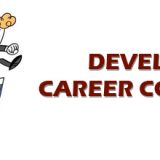Vinesh Phogat is an acclaimed Indian wrestler who was in the headlines recently thanks to the 2024 Olympics. Her success story underscores the impact of a strong focus on one’s personal and professional goals. One of the factors which has certainly contributed to Phogat’s success is Achievement Orientation.
Achievement Orientation is a critical psychological trait that drives individuals to pursue and attain goals with a focus on success and competence. Better achievement orientation can lead to greater productivity and satisfaction in life.
What is Achievement Orientation?
Achievement Orientation involves how individuals perceive and respond to achievement situations like learning, performance, and work. It means pursuing goals with excellence while managing challenges strategically, enhancing performance, and seizing opportunities. Achievement Orientation also requires balancing personal ambition with organizational needs, necessitating self-management, relationship skills, and contextual awareness.
What shapes Achievement Orientation?
Achievement Orientation is shaped by a combination of factors like:
1. Personal Goals and Values
The personal drive to achieve for the sake of self-satisfaction or fulfillment and what an individual values or prioritizes, such as success, recognition, or personal growth shapes achievement orientation.
2. Cultural and Social Influences
Cultural expectations and societal norms can influence how individuals define and pursue achievement. Additionally, support and expectations from family members can significantly impact one’s motivation and drive.
3. Educational Background
The quality and type of education, including mentorship and resources, play a role in shaping achievement orientation.
4. Personality Traits
Traits such as diligence, responsibility, and persistence are linked to higher achievement orientation.
5. Life Experiences
Past experiences with success or failure influence one’s drive and approach to future goals.
For example, overcoming adversity can build resilience and a stronger orientation towards achievement.
6. Goal Setting and Planning
The ability to set clear, specific, and achievable goals affects one’s motivation and developing effective strategies and action plans contributes to successful outcomes and sustained achievement orientation.
7. Feedback and Recognition
Receiving feedback and recognition for achievements can boost motivation and reinforce achievement orientation.
8. Support Systems
Guidance and support from mentors or role models can inspire and drive individuals towards achievement.
9. Mental and Emotional Factors
Goal setting, persistence, and resilience is also impacted by one’s ability to understand and manage emotions.
10. Work Environment and Opportunities
Availability of opportunities for advancement and a supportive and challenging work environment can enhance an individual’s achievement orientation.
Someone with High Achievement Orientation likes to:
- Learn new things and keep improving
- Foster excellence
- Give and receive feedback
- Accept challenges
- Take calculated risks
- Go out of their comfort zone
- Be open to innovation
- Have an unquenchable thirst for knowledge.
Tips for Building Achievement Orientation:
- Learn to identify and feed your motivations.
- Remove your internal blocks.
- Work on your self-esteem.
- Challenge your assumptions.
- Give yourself time to de-stress.
- Design a step-by-step strategy.
- Calculate the risks.
- Divide the next objective into small, attainable goals.
- Once each little goal is achieved, reward yourself.
- Constantly monitor progress towards your ultimate goal.




